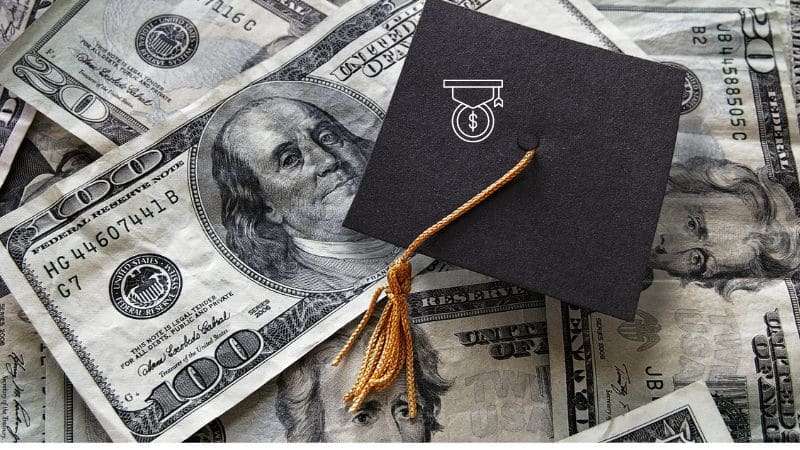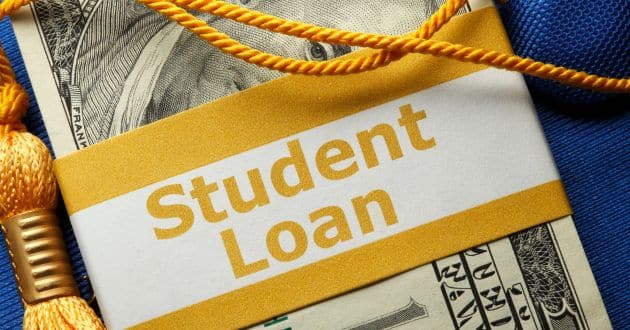Advertisements
Student loan forgiveness programs represent a ray of hope for numerous borrowers, serving as a pathway towards financial relief and liberation. These programs are strategically crafted to alleviate the weight of student debt, typically contingent upon meeting specific conditions, like engaging in public service or fulfilling certain eligibility criteria. In this discourse, we delve into the multifaceted realm of student loan forgiveness programs, encompassing eligibility prerequisites, the array of available programs, and actionable advice for prospective applicants.
Understanding Student Loan Forgiveness Programs
Student loan forgiveness programs are orchestrated initiatives, established by governmental bodies, educational institutions, or private entities, with the aim of pardoning some or all of a student’s loans under predefined circumstances. These endeavors are purposefully crafted to incentivize graduates to pursue careers in sectors that contribute to societal well-being, such as education, healthcare, or public service, by mitigating the financial strains associated with acquiring higher education.
Eligibility Requirements for Student Loan Forgiveness
The criteria for eligibility in student loan forgiveness programs typically hinge on several key factors:
- Type of Loan: It’s essential to note that not all loans qualify for forgiveness. Generally, federal student loans are eligible, while private loans typically do not meet the criteria.
- Employment: Many forgiveness programs necessitate employment in specific fields or for particular types of employers, such as non-profit organizations or government agencies.
- Repayment History: Applicants are often required to demonstrate a consistent history of on-time payments as part of their eligibility criteria.
How to Initiate the Student Loan Forgiveness Application Process
Initiating the application process for student loan forgiveness mandates meticulous attention to detail and adherence to specific protocols:
- Verify Your Eligibility: Thoroughly review the specific prerequisites outlined for the forgiveness program you intend to apply for.
- Consider Loan Consolidation if Required: Certain forgiveness programs may necessitate the consolidation of your federal student loans into a Direct Loan before proceeding with the application.
- Enroll in an Appropriate Repayment Plan: For programs like the Public Service Loan Forgiveness (PSLF), enrollment in an eligible repayment plan is crucial.
- Certify Your Employment: If your eligibility is contingent upon your employer, such as in the case of PSLF, ensure to submit an employment certification form as part of the application process.
Crucial Considerations to Keep in Mind
Advertisements
- Documentation: Maintain meticulous records of all correspondence and submissions associated with your forgiveness application to facilitate the process.
- Tax Implications: While recent changes have rendered Public Service Loan Forgiveness (PSLF) forgiveness tax-free, it’s prudent to be aware of potential tax implications for other forgiven debts.
Frequently Asked Questions Regarding Student Loan Forgiveness Programs

1 – What constitutes a student loan forgiveness program?
A student loan forgiveness program is a structured initiative enabling borrowers to have a portion or the entirety of their student loans pardoned, typically subject to specific conditions like engagement in public service, teaching, or meeting predetermined eligibility requirements.
2 – Who qualifies for the program?
Eligibility for the PSLF program mandates full-time employment with a U.S. federal, state, local, or tribal government entity or a tax-exempt not-for-profit organization. Additionally, applicants must possess Direct Loans or consolidate other federal student loans into a Direct Loan and complete 120 qualifying payments.
3 – Can private student loans be subject to forgiveness?
In general, private student loans are ineligible for government-sponsored forgiveness programs. However, select private lenders may extend assistance programs for borrowers facing financial distress.
Advertisements
4 – How does one apply for Teacher Loan Forgiveness?
To initiate the Teacher Loan Forgiveness process, you must fulfill five consecutive, full academic years as a full-time teacher at a qualifying educational institution. Following this, you can submit the Teacher Loan Forgiveness Application to your loan servicer.
5 – Which occupations are eligible for PSLF?
Positions within government entities at any level (federal, state, local, or tribal) and tax-exempt not-for-profit organizations under Section 501(c)(3) of the Internal Revenue Code are eligible for PSLF. Additionally, certain other types of not-for-profit organizations offering specified qualifying public services may also qualify.
In Summary
Traversing the intricacies of student loan forgiveness programs may seem daunting, yet comprehending these initiatives can yield substantial financial relief for eligible individuals. These programs serve to alleviate the weight of student debt while fostering careers in crucial sectors like public service, thereby promoting accessibility and sustainability in education.
For prospective applicants, a comprehensive grasp of eligibility criteria, application procedures, and potential financial implications, including tax considerations, is imperative. Conducting thorough analyses, such as identifying the most favorable personal loan rates before committing to an agreement, is pivotal.
Remaining abreast of legislative changes impacting these programs is paramount, as such revisions could broaden eligibility parameters or modify forgiveness terms. Heightened awareness and meticulous planning are indispensable components of this process.
Participation in student loan forgiveness programs transcends mere debt management; it entails laying the groundwork for a secure financial future. By leveraging the opportunities afforded by these initiatives, borrowers can invest in personal and professional growth without the specter of overwhelming student debt looming overhead.
In essence, student loan forgiveness programs serve as a lifeline for countless borrowers. Through adherence to program prerequisites and vigilance regarding evolving policies, borrowers can bolster their financial stability and contribute meaningfully to their communities with diminished financial constraints.





